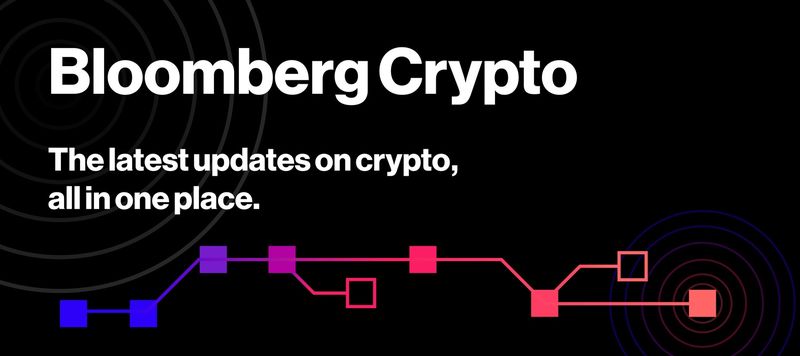Bitcoin Is Ridiculous. Blockchain Is Dangerous

The true believers won’t stop until they’ve remade the world. Some of it will be thrilling. Some of it will keep us up at night.
It’s not that I want Bitcoin holders to suffer, really. As a technologist and entrepreneur, I’m sympathetic to and admiring of risk takers. But as a writer, I enjoy the sheer human-condition-revealing sport. I’m happy to watch other people play video games without playing myself. I’ll watch poker, but I’ve never bought a deck of cards—and when I watch football, I keep the official NFL rulebook open on my phone. For whatever reason, I tend to like the rules more than the game. Bitcoin is at some level just a set of rules, defined by software, that has become one of the world’s weirdest games. And people who invest in an unmanageable abstraction, then panic when it underperforms, are very entertaining.
Everyone’s so excited and having such a good time, the sort of time you have right before they invade Paris. Watching the world of initial coin offerings over the past few years has been like watching popcorn pop. Everything rattled around in the hot air for what seemed like forever and then pop! Mastercoin! Ethereum! Bancor! Tezos! Then other kernels started popping, and now we’re eating popcorn for breakfast, lunch, and dinner. Blockchain startups visit our software agency and promise to pay in dollars, then add, “There are, however, other ways to get paid.” Everyone is smart and well-funded. And, yes, some blockchain startups (but never, ever the ones that visit us) seem comical—so many graphs! Some are even deliberately so, like Useless Ethereum Token, whose logo is a raised middle finger. “There will be no expectation of gains,” says the UET website. Naturally, buyers have taken on about $300,000 worth.
The people tossed around by the cryptocurrency tempest—their only sin is belief. (Well, and greed.) But here I can only smile warmly and sigh. I know what it’s like to believe.
I loved the web the moment I saw it, first as words on a DEC VT320 command-line terminal and then as many-size text with pictures and bright blue links. You could read things published in Switzerland! Or at MIT! The ageographicality of it all! I was in college when the web happened. I’d already used the internet for email and to download files, but here was something that married my utterly aspirational aspiration to write with my ability to perform repetitive clerical tasks—i.e., to program. No longer would I have to photocopy my own zines; the internet would photocopy them for me.
After college, at night in Brooklyn, I made my own web pages. In the morning I’d wake up, check if anyone had visited my site, then head to my job in Manhattan making web pages for companies. Money poured in—a bit into my bank account and floods of it elsewhere. Options, percentages, deal flow. I worked for a 30-person company that was bought to seed a much larger firm. The new office was on Fifth Avenue, and the new boss was from Microsoft. She brought her small dog.
It was a world of wonder and comedy. The Super Bowl ads were all dot-coms; co-workers were sleeping together; and before pitch meetings, the dog pooped under the vast glass conference table. I went to a Yahoo! party that featured a fake volcano. Manhattan bookstores were displaying Dow 30,000 by 2008: Why It’s Different This Time, not to mention Dow 36,000, and Dow 40,000: Strategies for Profiting From the Greatest Bull Market in History, and Dow 100,000: Fact or Fiction.
Everyone jabbered about initial public offerings, investment, and venture capital, and said “revolutionary” a lot. I knew I was supposed to have an opinion on how the web and the capital markets interacted, but I just wanted to write stuff and put it online. Or to talk about web standards—those documents, crafted by committees at the World Wide Web consortium, that defined the contract between a web browser and a web server, outlining how HTML would work. These standards didn’t define just software, but also culture; this was the raw material of human interaction. I could barely comprehend the new frontiers into which I awoke each morning.
That all of this adds up to money is ridiculous, and we should probably mock it more than we do
I first stumbled upon Bitcoin in 2009 and found it vaguely interesting. I understood it—or rather misunderstood it—as yet another take on micropayments, with a dash of old-school virtual currencies such as Beenz and Flooz, plus some spam-fighting ideas. My math is trash, so the Bitcoin white paper made no sense, but I still tried to mine a few coins, without success. I didn’t like wasting my Mac’s central processing unit cycles on folly, so I shrugged the whole thing off.
There’s no easy way to explain Bitcoin, but let me wave my hands and try: When you go to the ATM at a store and get money to buy a six-pack, you put in your bank card. The transaction processor verifies it somewhere in the ether, takes a fee, and spits out cash. It’s all powered by software. OK, deep breath. Acquiring Bitcoin is like using an ATM, except instead of government-backed money you get proof that a computer somewhere solved an automated puzzle faster than other computers, and instead of using an ATM card you’re using an auto-generated token that only you have, and instead of connecting to a bank you’re connecting to a decentralized network of computers that collectively maintain and update copies of a massive historical database of transactions—and that also collectively validate transactions, using, well, math, and spit out new Bitcoins from time to time, to reward the puzzle solvers. Slow exhale. Almost there. And instead of buying a six-pack from someone behind a counter, you’re transferring some amount of Bitcoin to another anonymous token. Over time, all the transactions that people make get lumped into blocks and validated, and they get a special code that takes into account all the codes in the blocks that came before, and thus you have it: a blockchain. According to Bitcoin.org, the Bitcoin blockchain is about 145 gigabytes, though it will be bigger by the time you read this. You can download the whole thing, the entire portrait of the Bitcoin economy, onto a USB drive.

That all of this adds up to money is ridiculous, and we should probably mock it more than we do. Consider Bitcoin a grand middle finger. It’s a prank, almost a parody of the global financial system, that turned into a bubble. “You plutocrats of Davos may think you control the global money supply,” the pranksters seem to say. “But humans will make an economy out of anything. Even this!” To be frank, central banking never really ground my gears; it’s just another one of those vast enterprises that we cower beneath, like network TV or religion. But I can see how it would piss people off. Bits gonna coin.
It was surprising when some of the big banks issued guardedly positive opinions of Bitcoin and blockchains. But as hidebound as bankers can be, more than the rest of us they see money as an abstraction. Even if they don’t feel Bitcoins in their bones as they might feel interest rates, it’s on an exchange, and people buy it, and it’s got moneylike ambitions. So why not? This could get serious. You can argue, too, that cryptocurrency is a boon to people living under repressive regimes—a Swiss bank account for the smartphone-clutching masses.
What Bitcoin actually accomplished is the financialization of a few genuinely joyous ideas. Shrug away the exchange rate, and you have a set of technologies that, for one, allows you to create scarcity. At least of a kind, because you can encode data and information into the blockchain in a way that lets you say, “This is the first one of these particular digital things.” It’s been applied to digital art, and you can see applications for patents, stock photos, things like that. With copies all over the place.

In the past, building a market required users, products, all that mess—farmers taking their plump pigs to market. What we have now is a means of spinning up any number of auctions, a method for the mass manufacture of middlemen. This is the destiny of Silicon Valley. And with ICOs and Bitcoin exchanges, we have a marketplace to value marketplaces. What in Galt’s name could be wrong with that? We’ve never (surveys vast tracts of empty Florida homes) had trouble before.
America understands new abstractions by financializing them. It’s how our culture absorbs information. Taxicabs, spare bedrooms, public education—we see markets everywhere. Bitcoin and the blockchain came prefinancialized, intended as a replacement for central banking. But what if the most important thing the blockchain offers isn’t a replacement for money but a new way to build culture?
I know what it’s like to hold a software idea in your head and see its possibilities arrayed before you like mysterious eggs. Some are rotten, some empty, some contain perfectly adequate chicks—but every now and then, given enough processing power, one could hatch a dragon.
Whenever I hear people talk about Bitcoin’s limitless future, I think about Dow 100,000. I first saw it in the old Borders bookshop at the World Trade Center. A few years later, the store was destroyed, and the book title was a sad joke. The markets lost interest in tech for years. Today all the Borders are gone, too.
Bubbles are melancholy things—swirls of lies and optimism used to hide a million unrealized yearnings. Bitcoin will crash because of course it will. Bubbles burst. The real estate and athletics management people go home, and the believers remain, meeting up, planning new markets. It could take years, it could take a decade, but the blockchain freaks have a world in their heads, and they won’t rest until it’s real. That the rest of us live here, too, is the least of their concerns. Some of the things they’ll do will be magical, community-building, economically thrilling. Others may keep us up at night.
Still, I can’t help but look on in envy. Not for the believers’ possible wealth, because that will elude most. (Even in a distributed money platform, wealth has a way of finding only a few pockets.) I’m jealous that they’ll experience it all: the crash, the rejection, and then the slow rebuild as they learn the difference between toys and tools. They get to participate in the screaming edge of culture.
Please

ICO Airdrop Update ? Please LIKE Facebook & Follow Twitter
Coins mentioned in post:
Very thoughtful! I really enjoyed this thank you.
Welcome
This was a great post, I hope you repost and expand upon it.
I don’t think it’s so easy for another coin to simply pop up and get adopted any more than another soda can come up and replace coke. Or another is to pop up and takeover windows, iOS, or Linux. It takes a lot of money to penetrate into the public psyche. Anyone in blockchain or crypto knows bitcoin. Bitcoin still controls the majority of crypto and when bitcoin up goes or down the rest of the market follows.
Bitcoin is software. It can easily adapt. It can evolve so if there is a vacuum bitcoin can change like it is doing. Will there be ups and downs? Sure. Will there be drama? Of course. Will there be room for other alt coins? Yeah but I bet the top 3 will easily take the vast majority , +90%. So I think bitcoin and if bitcoin then litecoin, and maybe ethereum. But hopefully Vitalik sticks to programming and no politics or phililosopjical crap.
And I do not count ripple as blockchain.
Just my humble opinion.